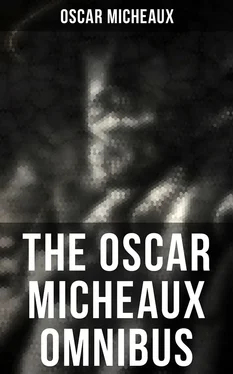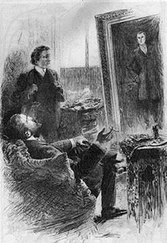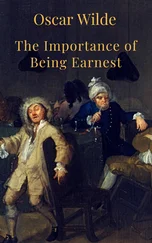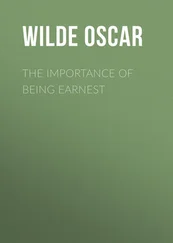After expressing themselves as being puzzled as to why the Reverend should want to separate us, Mrs. Lilis told me of her. During the conversation Mrs. Lilis said: "After you left last year, I went over to see Orlean, and spoke at length of you, of how broken hearted you appeared to be, and that she should be in Dakota. Mrs. McCraline looked uncomfortable and tried to change the subject, but I said my mind, and watched Orlean. In the meantime I thought she would faint right there, she looked so miserable and unhappy. She has grown so fat, you know she was always so peaked before you married her. Everybody is wondering how her father can be so mean, and continue to keep her from returning home to you, but Mrs. Ewis can and will help you get her because she can do more with that family than anyone else. She and the Elder have been such close friends for the last fifteen years, and she should be able to manage him."
Then her mother said: "Oscar, I have known you all your life; I was raised up with your parents; knew all of your uncles; and know your family to have always been highly respected; but I cannot for my life see, why, if Orlean loves you, she lets her father keep her away from you. Now here is my Millie," she went on, turning her eyes to her daughter, "and Belle too, why, I could no more separate them from their husbands than I could fly—even if I was mean enough to want to."
"But why does he do it, Mama? The Reverend wants to break up the home of Orlean and Oscar," Mrs. Lilis put in, anxiously.
"Bless me, my child," her mother replied, "I have known N.J. McCraline for thirty years and he has been a rascal all the while. I am not surprised at anything that he would do."
"Well," said Mrs. Lilis, with a sigh of resignation, "it puzzles me."
I then told them about calling up Mrs. Ewis and what I had planned on doing. It was then about nine-thirty. As they had a phone, I called Mrs. Ewis again.
While talking, I had forgotten the signal, and remembered it only when I heard Mrs. Ewis calling frantically, from the other end of the wire, "This is the wrong number, Mister, this is the wrong number." With an exclamation, I hung up the receiver with a jerk.
Mrs. Ankin lived about two blocks east, so I went to her house from Mrs. Lilis'. On the street, the effect of what had passed, began to weaken me. I was almost overcome, but finally arrived at Mrs. Ankins'. Just before retiring, at eleven o'clock, I again called up Mrs. Ewis, and it was still the "wrong number." I went to bed and spent a restless night.
I awakened about five-thirty from a troubled sleep, jumped up, dressed, then went out and caught a car for the west side. I felt sure the Elder would go home during the night.
It is always very slow getting from the south to the west side in Chicago, on a surface car, and it was after seven o'clock when I arrived at the address, an apartment building, where Mrs. Ewis' husband held the position as janitor, and where they made their home, in the basement.
She was just coming from the grocery and greeted me with a cheerful "Good Morning," and "Do you know that rascal stayed here until twelve o'clock last night," she laughed. She called him "rascal" as a nickname. She took me into their quarters, invited me to a chair, sat down, and began to talk in a serious tone. "Now Oscar, I understand your circumstances thoroughly, and am going to help you and Orlean in every way I can. You understand Rev. McCraline has always been hard-headed, and the class of ministers he associates with, are more hard-headed still. The Elder has never liked you because of your independence, and from the fact that you would not let him rule your house and submit to his ruling, as Claves does. Now Oscar, let me give you some advice. Maybe you are not acquainted with the circumstances, for if you had been, in the beginning, you might have avoided this trouble. What I am telling you is from experience, and I know it to be true. Don't ever criticize the preachers, to their faces, especially the older ones. They know their views and practices, in many instances, to be out of keeping with good morals, but they are not going to welcome any criticism of their acts. In fact, they will crucify criticism, and persecute those who have criticized them. Furthermore, you are fond of Booker T. Washington, and his ideas, and Rev. McCraline, like many other negro preachers, especially the older ones, hates him and everybody that openly approves of his ideas. His family admire the educator, and so do I, but we don't let on to him. Now I have a plan in mind, which I feel a most plausible one, and which I believe will work out best for you, Orlean, and and myself. Before I mention it, I want to speak concerning the incident of last fall. When you sent him that bunch of letters, with mine in it, he fairly raised cain; as a result, the family quit speaking to me, and Orlean has not been over here for six months, until she and Ethel came a few days before Easter, to get the hats I have always given them. Now, she went on, seeming to become excited, if I should invite Orlean over, the Elder would come along," which I knew to be true. "When you wrote me last summer in regard to taking her to a summer resort, so you could come and get her, I told Mary Arling about it. Now to be candid, Mrs. Arling and I are not the best of friends. You know she drinks a little too much, and I don't like that, but Mary Arling is a friend of yours, and a smart woman."
"Is that so?" I asked, showing interest, for I admired Mrs. Arling and her husband.
"Yes," Mrs. Ewis reassured me, "she is a friend of yours and you know all the McCraline family admire the Arlings, and Orlean goes there often." "Well, as I was saying", she went on, "last summer out at a picnic, Mrs. Arling got tipsy enough to speak her mind and she simply laid the family out about you. She told the Reverend right to his teeth that he was a dirty rascal, and knew it; always had been, and that it was a shame before God and man the way he was treating you. Yes, she said it," she reassured me when I appeared to doubt a little. "And she told me she wished you had asked her to take Orlean away; that she would not only have taken her away from Chicago, but would have carried her on back to Dakota where she wanted to be, instead of worrying her life away in Chicago, in fear of her father's wrath. So now, my plan is that you go over to her house, see? You know the address."
I knew the house. "Well," and she put it down on a piece of paper, "you go over there, and she will help you; and Oscar, for God's sake, she implored, with tears in her eyes, do be careful. I know Orlean loves you and you do her, but the Reverend has it in for you, and if he learned you were in the city, Orlean would not be allowed to leave the house. Now, she added, I will get him over here as soon as I can and you do your part. Good-bye."
I took a roundabout way in getting back to the south side, keeping out of the colored neighborhood as long as possible, by taking a Halsted street car south, got a transfer, and took a Thirty-fifth street car.
I was careful to avoid meeting anyone who might know me, but who might not be aware of my predicament, and who might thoughtlessly inform the McCralines.
I arrived at Mrs. Arlings without meeting anyone who knew me, however. They owned and occupied an elaborate flat at an address in the Thirty-seventh block on Wabash avenue. I rang the bell, which was answered by a young lady unknown to me, but who, I surmised, roomed at the house. She inquired the name, and when I had told her she let out an "O!" and invited me into the parlor. She hurried away to tell Mrs. Arling, who came immediately, and holding both hands out to me, said, "I am so glad you came at last, Oscar, I am so glad."
After we had said a few words concerning the weather, etc., I said in a serious tone, "Mrs. Arling, I am being persecuted on account of my ideas."
Читать дальше












